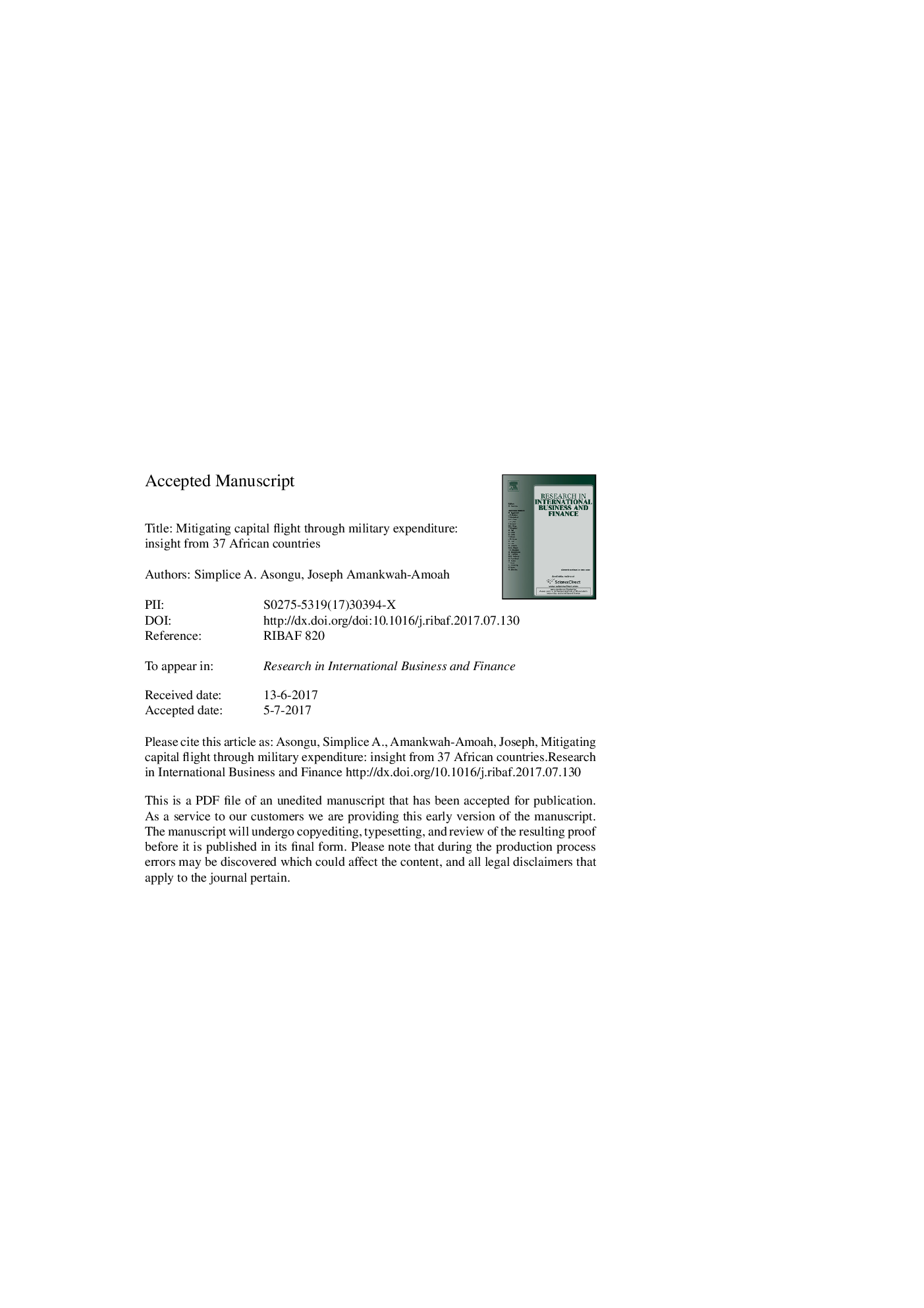| کد مقاله | کد نشریه | سال انتشار | مقاله انگلیسی | نسخه تمام متن |
|---|---|---|---|---|
| 7413694 | 1481789 | 2018 | 37 صفحه PDF | دانلود رایگان |
عنوان انگلیسی مقاله ISI
Mitigating capital flight through military expenditure: Insight from 37 African countries
ترجمه فارسی عنوان
کاهش سرمایه از طریق هزینه های نظامی: بینش از 37 کشور آفریقایی
دانلود مقاله + سفارش ترجمه
دانلود مقاله ISI انگلیسی
رایگان برای ایرانیان
کلمات کلیدی
موضوعات مرتبط
علوم انسانی و اجتماعی
مدیریت، کسب و کار و حسابداری
کسب و کار و مدیریت بین المللی
چکیده انگلیسی
The purpose of this study is to assess the thresholds at which military expenditure modulates the effect of terrorism on capital flight. We employed a panel data of 37 African countries from 1996 to 2010. The empirical evidence was based on: (i) baseline contemporary and non-contemporary OLS, (ii) contemporary and non-contemporary fixed effects regressions to account for the unobserved heterogeneity, (iii) the Generalised Method of Moments to account for the capital flight trap and (iv) Quantile Regressions (QR) to account for initial levels of capital flight. The study found that the thresholds are apparent exclusively in Quantile Regressions with military expenditure thresholds ranging from: 4.224 to 5.612 for domestic terrorism, 5.734-7.363 for unclear terrorism and 4.710-6.617 for total terrorism. No thresholds are apparent in transnational terrorism related regressions. Depending on the terrorist target, the findings broadly show that a critical mass of between 4.224 and 7.363 of military expenditure as a percentage of GDP is needed to reverse the negative effect of terrorism on capital flight. In spite of the growing consensus of the need to utilise military expenditure to help combat terrorism, our understanding of the threshold at which military expenditure completely dampens the negative effect of terrorism on capital flight remains largely underexplored. We capitalize on panel data of 37 African countries to address this lacuna in our understanding of this important issue.
ناشر
Database: Elsevier - ScienceDirect (ساینس دایرکت)
Journal: Research in International Business and Finance - Volume 45, October 2018, Pages 38-53
Journal: Research in International Business and Finance - Volume 45, October 2018, Pages 38-53
نویسندگان
Simplice A. Asongu, Joseph Amankwah-Amoah,
